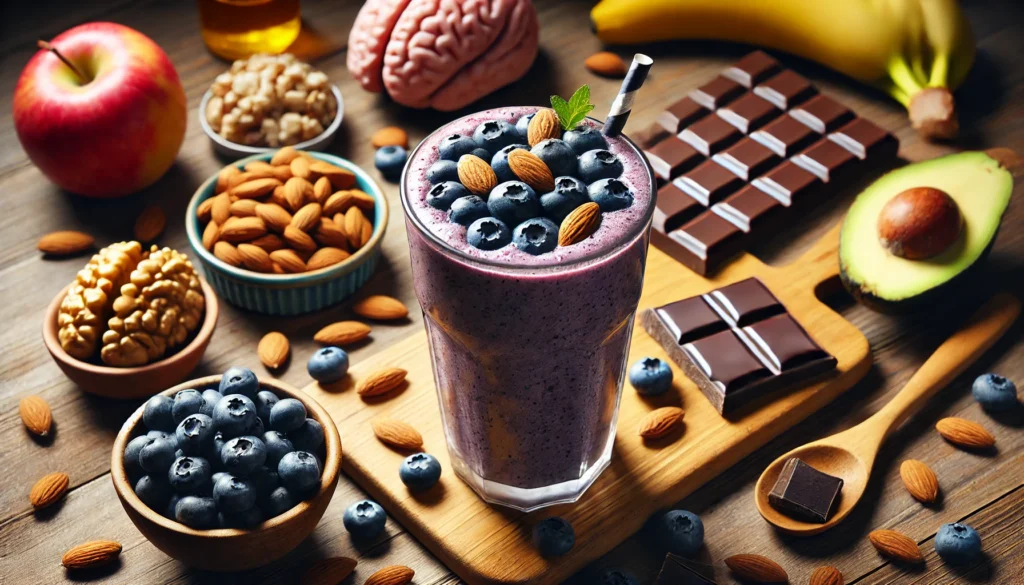Understanding Attention Span and Its Importance
In a world filled with distractions, maintaining focus and concentration has become increasingly challenging. Whether you are studying, working, or engaging in daily activities, your ability to sustain attention plays a crucial role in productivity and cognitive performance. Understanding how to improve attention span can help individuals overcome distractions, enhance memory retention, and optimize brain function.
The term “attention span” refers to the length of time an individual can concentrate on a task without becoming distracted. While some people naturally have a longer attention span, many struggle with staying focused, especially in today’s fast-paced digital environment. Studies indicate that the average human attention span has decreased over the past few decades due to technological advancements and constant exposure to stimuli. Consequently, learning how to focus better is essential for achieving personal and professional success.
This article explores scientifically backed techniques to boost attention span, enhance focus, and improve cognitive endurance. We will delve into the role of brain chemistry, lifestyle modifications, and practical exercises that can help individuals increase attention span and maximize mental efficiency.
You May Also Like: Does Exercise Help with Brain Fog? The Science Behind Movement and Mental Clarity
The Science Behind Focus and Attention
Cognitive attention is governed by complex neurological processes involving neurotransmitters, brain regions, and external stimuli. Understanding the science behind focus can provide valuable insights into how to improve attention span and optimize mental clarity.
The Role of Neurotransmitters
Neurotransmitters such as dopamine, norepinephrine, and acetylcholine play a pivotal role in sustaining attention. Dopamine is responsible for motivation and reward processing, while norepinephrine enhances alertness and cognitive engagement. Acetylcholine supports learning and memory, making it essential for how to focus better during tasks that require deep concentration.
Brain Structures Involved in Focus
Key brain structures involved in attention span include:
- Prefrontal Cortex: Responsible for executive functions such as decision-making, planning, and sustained attention.
- Parietal Lobe: Helps in processing sensory information and maintaining focus on relevant stimuli.
- Reticular Activating System (RAS): Regulates wakefulness and alertness, helping individuals stay engaged in cognitive tasks.
Cognitive Load and Attention Drain
Cognitive load refers to the total amount of mental effort required to process information. Excessive cognitive load can overwhelm the brain, leading to distractions and decreased focus. By implementing strategies to enhance focus and concentration, individuals can reduce cognitive fatigue and increase their ability to sustain attention.

Practical Techniques to Improve Attention Span
1. Mindfulness Meditation and Attention Control
Mindfulness meditation has been scientifically proven to enhance attention span and cognitive resilience. Research shows that regular meditation can rewire the brain, increasing gray matter density in regions responsible for attention control. Practicing mindfulness for just 10–15 minutes per day can significantly improve the ability to stay focused and avoid distractions.
2. The Pomodoro Technique for Sustained Focus
The Pomodoro Technique is a time management method that involves working for 25-minute intervals, followed by short breaks. This technique enhances productivity by leveraging the brain’s natural ability to focus in short bursts. Over time, implementing the Pomodoro method can help individuals expand their attention span and train the brain to sustain concentration for longer periods.
3. Nutritional Support for Brain Function
Diet plays a crucial role in cognitive performance. Certain nutrients enhance neurotransmitter production, supporting memory and attention. To increase focus and concentration, consider incorporating the following brain-boosting foods:
- Omega-3 Fatty Acids: Found in salmon, walnuts, and flaxseeds, omega-3s enhance cognitive function and focus.
- Antioxidants: Berries, dark chocolate, and green tea contain antioxidants that reduce oxidative stress in the brain.
- B Vitamins: Essential for energy metabolism, B vitamins found in whole grains and leafy greens support mental clarity and focus.
4. Exercise and Physical Activity
Regular physical activity improves circulation, delivering oxygen and nutrients to the brain. Aerobic exercises such as running, swimming, and cycling have been shown to increase attention span by stimulating neurogenesis (the growth of new brain cells). Additionally, short bursts of movement throughout the day can counteract mental fatigue and help individuals refocus their minds.
5. Digital Detox and Reducing Screen Time
Excessive screen time and multitasking can impair attention span by overstimulating the brain. Reducing exposure to digital distractions by implementing screen-free periods, using focus apps, and setting designated work hours can help strengthen attention span and minimize cognitive overload.
6. Sleep Optimization and Circadian Rhythm Alignment
Sleep is essential for memory consolidation and cognitive function. Poor sleep quality can negatively impact focus, decision-making, and emotional regulation. To enhance focus and concentration, aim for 7–9 hours of quality sleep per night, maintain a consistent sleep schedule, and avoid electronic devices before bedtime.
7. Cognitive Training and Brain Exercises
Engaging in cognitive exercises such as memory games, puzzles, and problem-solving activities can strengthen attention span and improve mental agility. Platforms like Lumosity and BrainHQ offer scientifically designed exercises to enhance focus and cognitive resilience.
8. Stress Reduction Techniques
Chronic stress impairs attention span by increasing cortisol levels, which can interfere with cognitive function. Practicing deep breathing exercises, yoga, and engaging in hobbies can help individuals refocus their minds and regain mental clarity.
9. Environmental Modifications for Focus
Creating an environment conducive to focus is essential for maintaining attention span. Strategies to improve concentration include:
- Working in a quiet, clutter-free space.
- Using noise-canceling headphones to block distractions.
- Implementing natural lighting to support circadian rhythms and reduce eye strain.

Long-Term Strategies to Sustain Attention and Focus
Establishing Consistent Routines
Consistency is key to maintaining cognitive performance. Developing structured routines, such as setting specific work hours and maintaining regular break schedules, can increase attention span and create a sense of mental stability.
Incorporating Nootropics and Cognitive Enhancers
Nootropic supplements, such as Bacopa Monnieri, Rhodiola Rosea, and L-Theanine, have been shown to support focus and memory retention. While natural supplements can aid cognitive performance, consulting with a healthcare professional before use is recommended.
Social Interaction and Cognitive Engagement
Engaging in meaningful conversations and participating in intellectually stimulating activities can expand attention span and promote neuroplasticity. Activities such as reading, debating, and learning new skills encourage mental agility and prevent cognitive decline.

Frequently Asked Questions (FAQs)
1. How can you increase your attention span naturally?
There are several natural ways to increase attention span without relying on stimulants or medication. Engaging in mindfulness meditation can train the brain to focus for longer periods by improving cognitive control and reducing distractions. Regular physical exercise, particularly aerobic activities, enhances blood flow to the brain and supports neurotransmitter function, which improves concentration. Eating a brain-healthy diet rich in omega-3 fatty acids, antioxidants, and vitamins also plays a critical role in sustaining focus. Lastly, reducing digital distractions, implementing structured work periods, and getting sufficient sleep can all contribute to better sustained attention.
2. What are the best focus techniques to improve concentration?
Several focus techniques can help improve concentration, depending on individual preferences and work environments. The Pomodoro Technique is highly effective, using 25-minute focused work sessions followed by short breaks to maintain productivity. Practicing single-tasking—focusing on one task at a time instead of multitasking—improves efficiency and reduces cognitive overload. Using visualization techniques, such as mentally rehearsing tasks before starting them, can also help sustain attention. Additionally, engaging in cognitive training exercises, like brain puzzles and memory games, strengthens mental endurance and sharpens focus over time.
3. How can you regain your attention span after losing focus?
Regaining attention span after distractions or mental fatigue requires intentional effort and specific techniques. Taking short breaks to reset cognitive function—such as a five-minute walk or deep breathing exercise—can help refocus the mind. Engaging in active recall, where you summarize what you were working on before the distraction, reinforces memory and helps re-establish concentration. Minimizing external interruptions, such as turning off phone notifications and using noise-canceling headphones, reduces the likelihood of losing focus. Additionally, using mental triggers, such as listening to a specific type of music or following a pre-task ritual, can condition the brain to enter a focused state more efficiently.
4. How does sleep affect your ability to focus and concentrate?
Sleep is critical for maintaining cognitive function, including attention span and concentration. During deep sleep stages, the brain consolidates memories, processes information, and clears out toxins that accumulate throughout the day. Chronic sleep deprivation impairs decision-making, slows reaction times, and reduces the ability to sustain attention. Establishing a consistent sleep schedule, avoiding blue light exposure before bedtime, and ensuring quality sleep can significantly enhance cognitive performance. Short naps of 10–20 minutes can also provide a quick focus boost without leading to grogginess.
5. What role does diet play in improving concentration?
Diet has a direct impact on brain function and attention span. Nutrients such as omega-3 fatty acids (found in fish and flaxseeds) support neural connections, while antioxidants (from berries and dark chocolate) protect brain cells from damage. B vitamins, particularly B6 and B12, help regulate neurotransmitters that influence focus and alertness. Staying hydrated is also crucial, as even mild dehydration can impair cognitive function. Reducing sugar and processed food intake prevents energy crashes, which can lead to difficulty concentrating throughout the day.
6. How do environmental factors affect focus and attention span?
The environment in which you work or study plays a significant role in attention span and concentration. Cluttered spaces, excessive noise, and poor lighting can lead to mental fatigue and distractions. Organizing a clean workspace, using natural lighting, and maintaining a comfortable temperature can help enhance focus. Some individuals benefit from white noise or instrumental music, which helps block out background distractions and create a mental flow state. Additionally, using physical cues, such as a dedicated work area or structured time blocks, signals the brain to engage in deep concentration.
7. How can you train your brain to stay focused for longer periods?
Training the brain to stay focused requires consistent practice and gradually increasing cognitive endurance. Cognitive training games, such as Sudoku, chess, and memory exercises, help improve sustained attention over time. Gradually extending focus periods—starting with 10-minute focus sessions and increasing them incrementally—can help train mental stamina. Practicing controlled breathing techniques, such as the 4-7-8 method, calms the nervous system and enhances mental clarity. Over time, engaging in learning-based challenges, such as reading complex material or acquiring new skills, strengthens neural pathways that support focus and problem-solving.
8. What are some quick ways to refocus your mind when feeling distracted?
When feeling distracted, several quick strategies can help refocus your mind and regain attention. Engaging in physical movement, such as stretching or a brief walk, helps reset cognitive function by increasing blood flow to the brain. Practicing the “5-4-3-2-1” grounding technique, where you name five things you see, four things you touch, three sounds you hear, two scents you smell, and one thing you taste, refocuses attention to the present moment.** Switching tasks briefly to a different type of activity (such as reading or doodling) can refresh the mind before returning to a primary task. Finally, using mental focus affirmations, such as repeating “I am fully present in this moment,” reinforces concentration.
9. How does physical exercise help in improving focus and attention?
Exercise is one of the most effective ways to improve focus and attention span. Cardiovascular exercises, such as running or swimming, increase oxygen delivery to the brain, enhancing cognitive function. Strength training improves executive function and helps with long-term concentration by boosting dopamine levels. Activities requiring coordination, such as yoga or dance, strengthen neural connections responsible for sustained attention. Even brief physical movement, such as standing up and stretching every hour, can counteract mental fatigue and help restore focus. Over time, incorporating regular exercise into a daily routine significantly enhances attention control.
10. What long-term strategies help strengthen attention span and concentration?
Long-term strategies for strengthening attention span involve a combination of lifestyle changes, cognitive exercises, and consistent habits. Establishing a structured routine, where tasks are planned in advance, reduces cognitive overload and enhances focus. Practicing deep work sessions, where distractions are minimized for extended periods, trains the brain to concentrate for longer durations. Engaging in lifelong learning, such as reading challenging materials or acquiring new skills, helps sustain cognitive flexibility and mental endurance. Maintaining social interactions and engaging in stimulating conversations also contribute to cognitive resilience. Ultimately, adopting a holistic approach—including nutrition, sleep, mindfulness, and exercise—ensures sustained improvements in attention span and overall cognitive performance.
Conclusion: Building a Foundation for Lifelong Focus
Improving attention span requires a combination of lifestyle modifications, cognitive training, and environmental adjustments. By implementing these scientifically backed techniques, individuals can increase focus and concentration, enhance productivity, and optimize cognitive performance. Whether through mindfulness meditation, strategic time management, or nutritional support, learning how to improve attention span is an invaluable skill that contributes to lifelong mental clarity and success.
Further Reading:
Speaking of Psychology: Why our attention spans are shrinking, with Gloria Mark, PhD
Important Note: The information contained in this article is for general informational purposes only, and should not be construed as health or medical advice, nor is it intended to diagnose, prevent, treat, or cure any disease or health condition. Before embarking on any diet, fitness regimen, or program of nutritional supplementation, it is advisable to consult your healthcare professional in order to determine its safety and probable efficacy in terms of your individual state of health.
Regarding Nutritional Supplements Or Other Non-Prescription Health Products: If any nutritional supplements or other non-prescription health products are mentioned in the foregoing article, any claims or statements made about them have not been evaluated by the U.S. Food and Drug Administration, and such nutritional supplements or other health products are not intended to diagnose, treat, cure, or prevent any disease.


